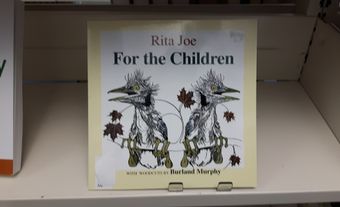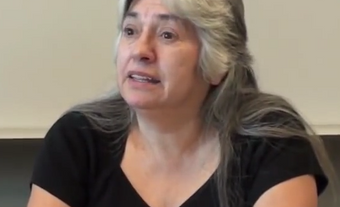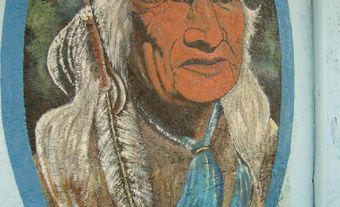
Early Life, Education and Career
Daniel Paul was born in a log cabin in Indian Brook Reserve, Nova Scotia, home of Sipekne’katik First Nation. His parents, Sarah Agnes Noel and William Gabriel Paul, had 14 children together.
The Paul family lived in Saint John, New Brunswick, until 1935. William lost his job as a waterfront stevedore and the family survived on welfare for a brief period, until the government support was cut. In the fall of 1935, the family was moved to Indian Brook Reserve and was given tarpaper to build a shack to survive the winter. The family gradually improved its living conditions during Paul’s childhood.
Paul attended the reserve’s Indian Day School, meaning he lived at home during his early education. He enjoyed studying math, history and geography, but resented the way Mi’kmaq culture was portrayed as primitive and uncivilized. The school barred students from speaking Mi’kmaq and taught that Mi’kmaq people were good at making baskets, axe handles, and arts and crafts. He attended the school until he was 14 and in Grade 9, after which he withdrew so he could work.
Paul enrolled in Success Business College in Truro, Nova Scotia in 1960 to study bookkeeping. He worked as a bookkeeper for several private companies before getting a job with the federal Department of Indian Affairs.
Public life
In 1993, Paul launched his public career by publishing We Were Not the Savages: A Mi’kmaq Perspective on the Collision between European and Native American Civilizations. Paul described it as an “exposé” of the overt racism Mi’kmaq people had faced in Nova Scotia. In the book, he argued that the European conquest of the Americas was done with “much barbarity” and that “these actions have been studiously downplayed by most Caucasian male historians.”
The first two chapters look at what is known about Mi’kmaq social, governmental and religious life in the 5,000-10,000 years they lived in Mi’kma’ki, a territory encompassing much of today’s Maritime provinces and parts of Maine and Québec. Paul said the Mi’kmaq divided their land into seven districts, where people lived in small villages. He outlined the roles the district chiefs and councils played in governing Mi’kmaq life.
The bulk of the book re-examined the centuries after Europeans began settling in Mi’kmaq territory, with a focus on British activities in the 1700s. The book’s most controversial pages are those that recast Halifax’s founder, Edward Cornwallis, as the man who tried to “exterminate the Mi’kmaq.”
Paul described Cornwallis’s 1749 “scalping proclamation” — offering a government bounty to anyone who killed or captured any Mi’kmaq person — as an act of what he called “genocide.” He wrote that he had long heard rumours of such a bounty, but it was only on seeing a replica of the proclamation in a pub that he realized the truth and “began to feel sick.”
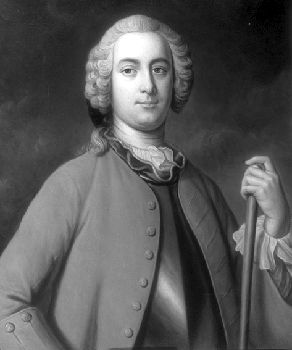
Some critics of the book said Cornwallis acted to protect the settlement in Halifax after a group of Mi’kmaq attacked and killed British settlers near Dartmouth Cove in June 1749. In 2013, Saint Mary’s University historian John Reid argued that Paul’s book created a “third” Cornwallis. Reid said the first Cornwallis is the historical figure who founded Halifax and established British control over Nova Scotia, a territory then disputed with the Mi’kmaq and the French. Reid said the second Cornwallis was a “historical memory” captured in the statue symbolizing “a potent mix of imperialism, a racially-charged triumphalism based on the savagery-civilization binary, state promotion, and an economic agenda.” He said the “third” Cornwallis came from Paul’s book and articles where he called Cornwallis “an unrepentant war criminal.”
Reid has also cautioned against using the word “genocide” in talking about Cornwallis’s actions. “I am personally reluctant to use terms like genocide and ethnic cleansing to apply to the 18th century in the sense that to me, they have very particular meanings that are closely tied to more recent times, in particular to the second half of the 20th century,” he said.
Statue controversy
In the 1990s and 2000s, Paul used his book, his column in The Chronicle Herald newspaper, and frequent public appearances to call for the removal of a statue of Cornwallis in downtown Halifax, and for Cornwallis’s name to be stripped from streets and public places. The debate reached a peak in 1999, when Halifax celebrated the 250th anniversary of its founding by Cornwallis.
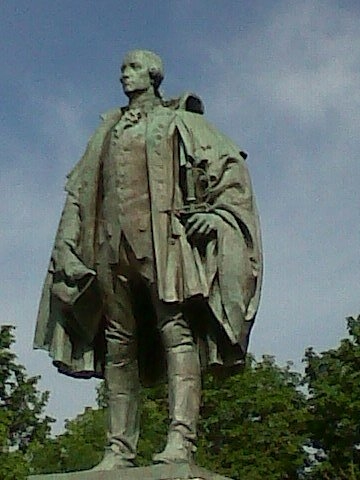
Original plans called for a Cornwallis re-enactor to come ashore to cheering crowds, including “Mi’kmaw settlers” camped out in wigwams and lodges. Paul and others strongly objected. “No, my friends, the Mi’kmaq will not help you celebrate Cornwallis!” he wrote in his newspaper column. Halifax ended up holding a scaled-down version of the event, with a Cornwallis re-enactor present but not named.
While Paul succeeded in having several buildings and signs drop references to Cornwallis, and other signs changed to reflect the long Mi’kmaq history in the land, the statue remained standing in Cornwallis Park in Halifax for many years. In 2017, Halifax council voted to form a committee to advise it on how Cornwallis should be commemorated. In January 2018, Halifax council took down the Cornwallis statue Paul had long campaigned against and put it into temporary storage while it considers the statue's long-term future (See Cornwallis Statue).
Honours
Daniel Paul is a member of the Order of Nova Scotia and the Order of Canada and has received a number of honourary degrees. His investment citation into the Order of Canada called him a “powerful and passionate advocate for social justice and the eradication of racial discrimination.”
In 2017, Paul published his first novel, Chief Lightning Bolt, which tells the story of a heroic Mi’kmaq leader dealing with the arrival of European settlers.
In 2022, Paul was awarded the Wel-lukwen Award by the Nova Scotia Human Rights Commission for his work on expanding cultural awareness.

 Share on Facebook
Share on Facebook Share on X
Share on X Share by Email
Share by Email Share on Google Classroom
Share on Google Classroom
